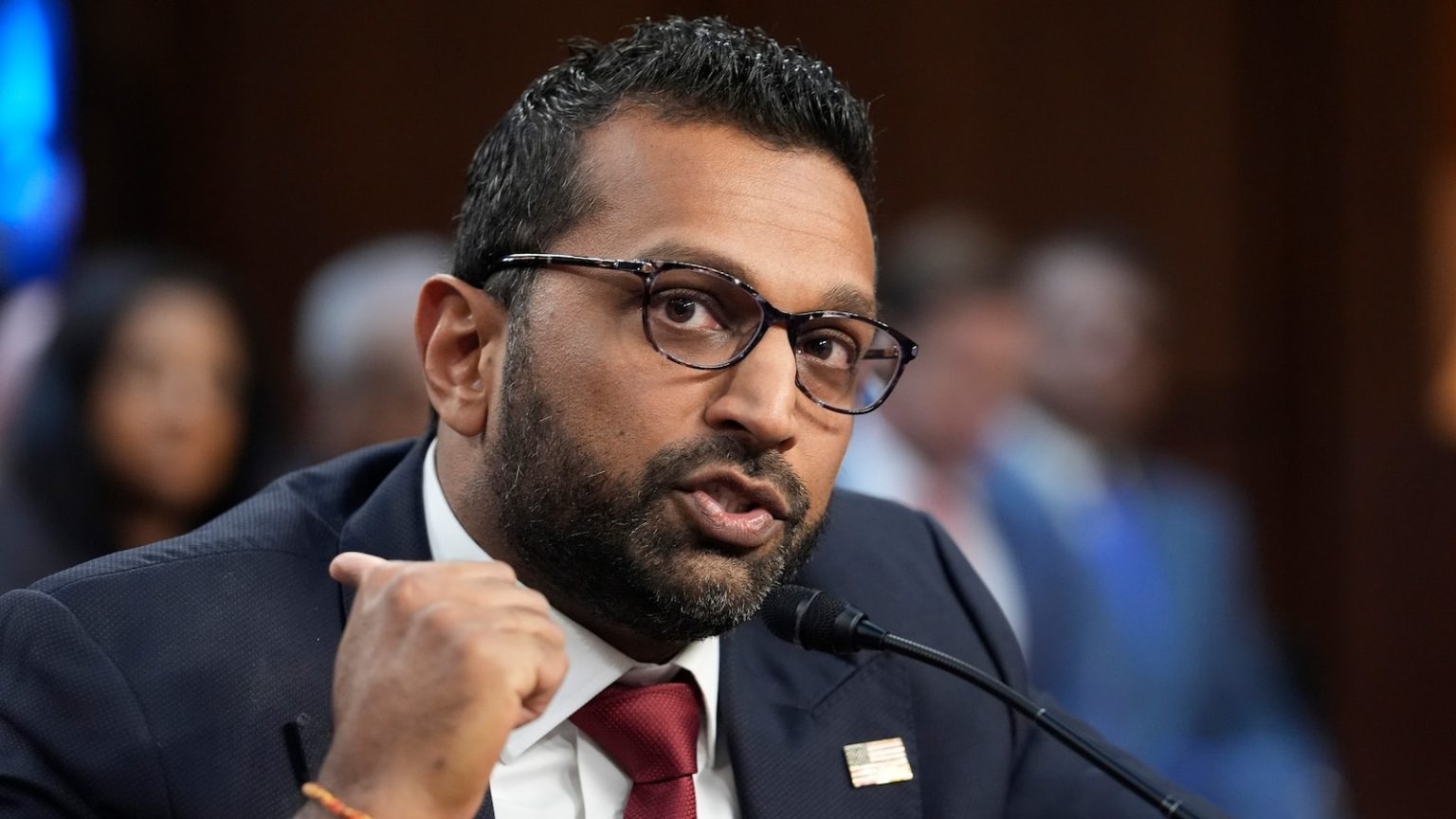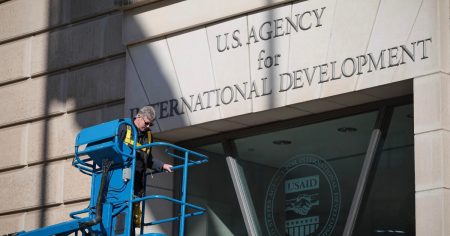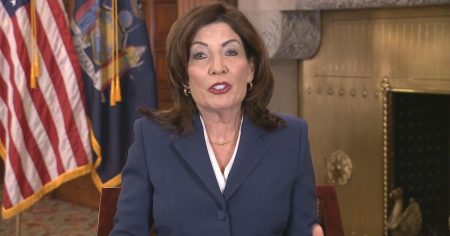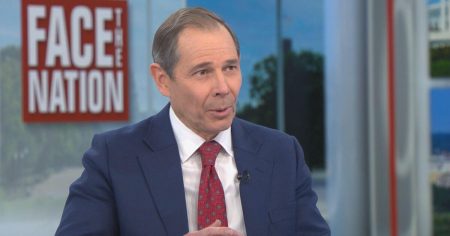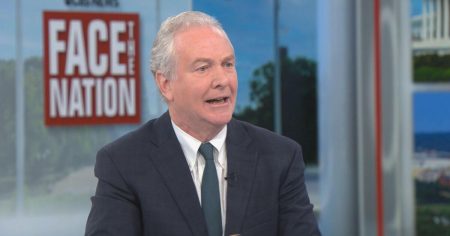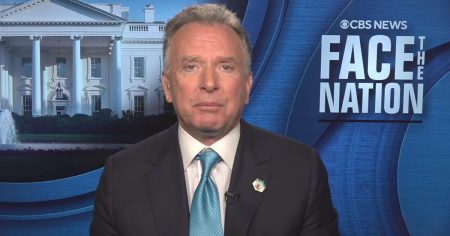The Senate Vote on Kash Patel’s FBI Nomination: A Divisive Moment in U.S. Politics
Introduction: A Critical Vote for the FBI’s Future
On Thursday, the Senate is set to vote on Kash Patel’s highly controversial nomination to lead the FBI, a decision that could reshape the nation’s top law enforcement agency. If confirmed, Patel would become the 18th Cabinet official approved by lawmakers since President Donald Trump’s inauguration just one month ago. This nomination has sparked intense debate, with Republicans rallying behind Patel and Democrats vehemently opposing him. The vote represents a pivotal moment in U.S. politics, highlighting the deepening partisan divide and the ongoing struggle for control of key government institutions.
Republican Support: A Call for Reform and Accountability
Republicans have thrown their full support behind Kash Patel, framing his nomination as an opportunity to reform an FBI they claim has been corrupted by political bias. Senate Judiciary Chairman Chuck Grassley, R-Iowa, has been a vocal advocate for Patel, arguing that the nominee has exposed the FBI’s alleged politicization and has been unfairly targeted as a result. "The FBI has been infected by political bias and weaponized against the American people," Grassley said during a recent committee meeting. "Mr. Patel knows it, Mr. Patel exposed it, and Mr. Patel has been targeted for it." This narrative resonates with many conservatives who believe the agency has strayed from its mission and become a tool for partisan agendas.
Grassley’s comments reflect a broader Republican sentiment that the FBI is in need of drastic overhaul. Patel’s nomination is seen as a way to restore what they view as lost integrity within the agency. The Judiciary Committee advanced Patel’s nomination in a party-line vote, signaling that Republican lawmakers are united in their support. However, this unity has not gone unchallenged, as Democrats and critics argue that Patel lacks the qualifications and temperament to lead the FBI effectively.
Democratic Opposition: A Warning of Disaster
Democrats have mounted fierce opposition to Patel’s nomination, raising serious concerns about his experience, judgment, and suitability for the role. Sen. Dick Durbin, the ranking member of the Judiciary Committee, has been a leading voice against Patel, warning that his confirmation would be a "political and national security disaster." Durbin has criticized Republicans for ignoring what he describes as "red flags" in Patel’s background, including his "bizarre political statements" and his lack of experience in law enforcement leadership.
Durbin’s concerns are shared by many Democrats, who point to Patel’s controversial remarks, including his support for Jan. 6 rioters and quotes that appeared to align with conspiracy movements like QAnon. These criticisms have led Democrats to question whether Patel can lead the FBI impartially, particularly given his history of inflammatory rhetoric. Durbin and other opponents argue that Patel’s nomination is not just about his qualifications but also about the broader implications for the agency’s independence and credibility.
Kash Patel: A Loyalist with a Controversial Past
At 44 years old, Kash Patel is a steadfast loyalist to President Donald Trump, having served in various roles during Trump’s first administration, including acting deputy director of national intelligence. His nomination to lead the FBI comes after Trump indicated he would fire former FBI Director Christopher Wray, who stepped down at the end of the Biden administration. Patel has been an outspoken critic of the FBI for years, advocating for radical reforms, including "cleaning out" the agency’s headquarters as part of his mission to dismantle the so-called "deep state."
Patel’s criticism of the FBI has made him a polarizing figure, with supporters viewing him as a necessary disruptor and opponents seeing him as a threat to the agency’s neutrality. During his confirmation hearings last month, Patel faced tough questions from Democrats about his past statements, including his support for Jan. 6 rioters and his apparent sympathy for conspiracy theories. In response, Patel sought to distance himself from some of his earlier rhetoric, assuring lawmakers that he would take "no retributive actions" if confirmed as FBI director. Despite these assurances, many remain skeptical of his ability to lead the agency without imposing his own political agenda.
Controversies and Concerns: The Weight of Patel’s Nomination
Patel’s nomination has been dogged by controversy, with critics highlighting his lack of experience in law enforcement leadership and his history of inflammatory comments. Democrats have accused Republicans of rushing the nomination process, ignoring critical questions about Patel’s suitability for the role. The concerns go beyond partisan politics, however, as the FBI faces significant challenges, including ongoing turmoil within the agency and external pressures from political factions.
One of the most pressing issues is the Justice Department’s recent request for a list of FBI employees who worked on Jan. 6 cases, a move that has prompted agents to file a lawsuit to block the effort. This development has added to the sense of uncertainty within the agency, with many fearing that Patel’s leadership could exacerbate the crisis. If confirmed, Patel will inherit an agency grappling with internal upheaval and external scrutiny, raising questions about whether he is equipped to navigate these challenges effectively.
The Bigger Picture: What Patel’s Confirmation Means for the FBI and Beyond
Kash Patel’s nomination represents more than just a change in leadership at the FBI; it symbolizes a broader shift in how the agency is perceived and managed. For Republicans, Patel’s confirmation would be a victory in their effort to reshape the FBI into an institution that aligns more closely with their vision of justice and accountability. For Democrats and critics, however, it would be a step backward, undermining the agency’s independence and credibility.
As the Senate prepares to vote on Patel’s nomination, the stakes are high. The outcome will not only determine the future of the FBI but also reflect the deeper divisions in American politics. Whether Patel is confirmed or not, the debate over his nomination has already ignited a national conversation about the role of law enforcement in a politically charged environment. One thing is certain: the decision will have far-reaching consequences for the FBI, the Justice Department, and the nation as a whole.





